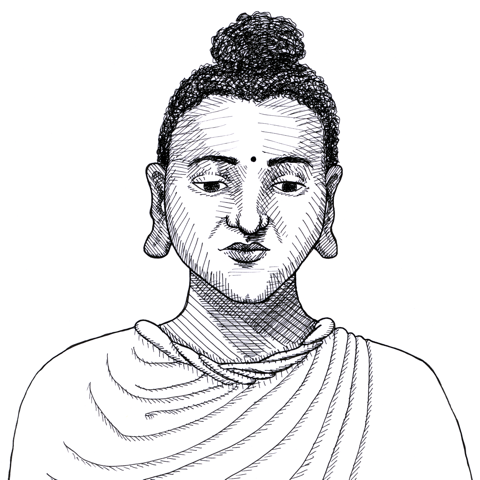
Buddha on Wandering Rightly in the World
Found in: The Gospel of Buddha
Many of the Buddha’s sermons emphasized clear vision, as in this quotation from The Gospel of Buddha (1915 edition):
Religion & Toleration
“Faithful is he who is possessed of knowledge, seeing the way that leads to Nirvāna; he who is not a partisan; he who is pure and virtuous, and has removed the veil from his eyes. Such a one will wander rightly in the world.”